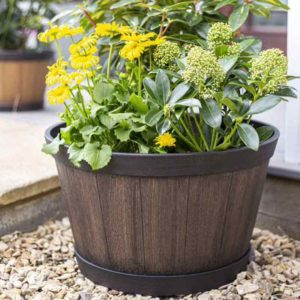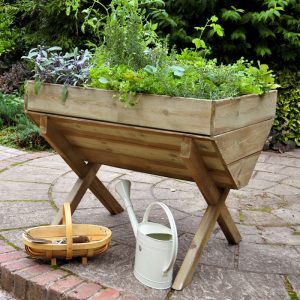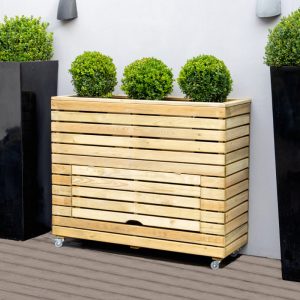This spacious Elevated Garden is an excellent choice for a small kitchen garden, enabling you to cultivate fresh produce and aromatic plants for your culinary creations. Its elongated shape provides a classic raised-bed aesthetic. These planters are constructed from timber that has undergone Pressure Treatment, ensuring a 15-year warranty against decay and fungal deterioration. The Garden can accommodate around 400 liters of soil, providing ample room for an assortment of plant species, blooms, veggies, or herbs. Delivered unassembled, this planter is simple to put together thanks to its pre-notched frame. Assembly guidance and necessary fixtures are enclosed. Additional dimensions and designs can be found within the Caledonian selection. For cultivating edible crops, it is advisable to install a membrane within the planter before adding the soil.















































